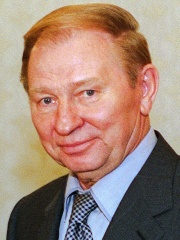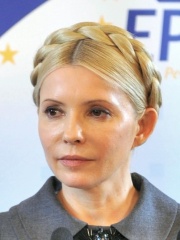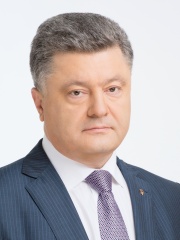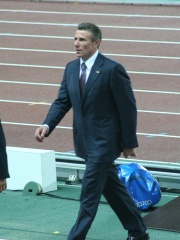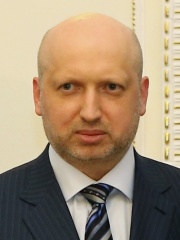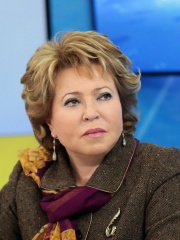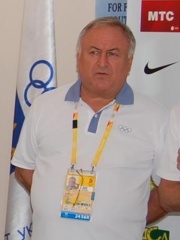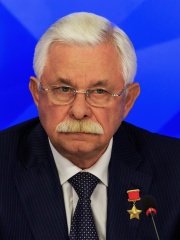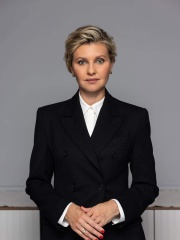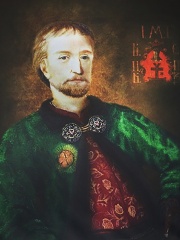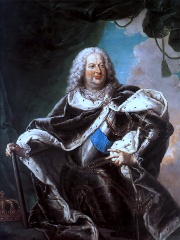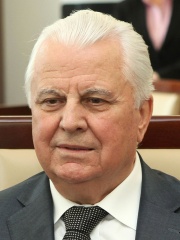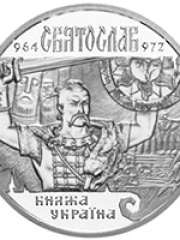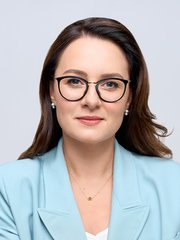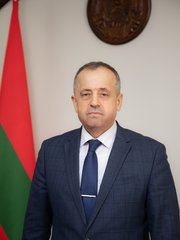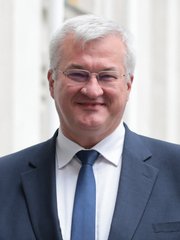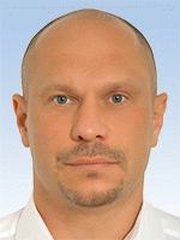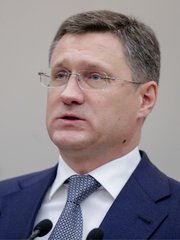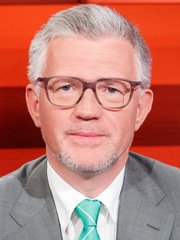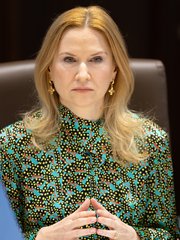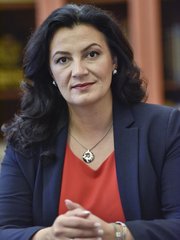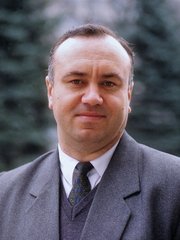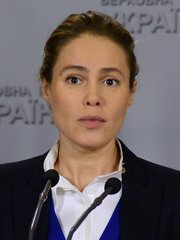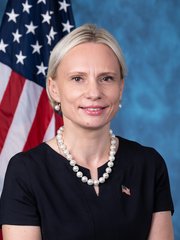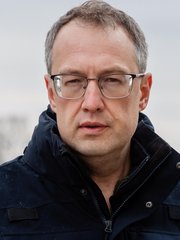
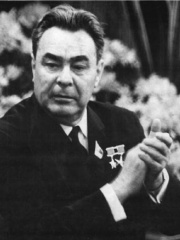
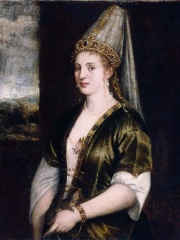
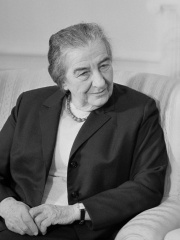
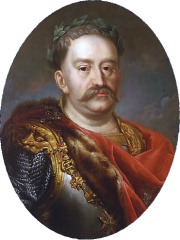
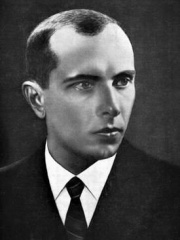
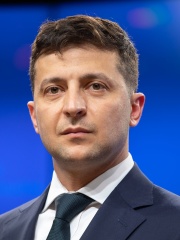
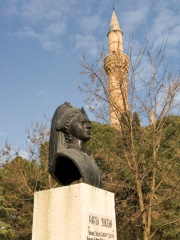
The Most Famous
POLITICIANS from Ukraine
This page contains a list of the greatest Ukrainian Politicians. The pantheon dataset contains 19,576 Politicians, 260 of which were born in Ukraine. This makes Ukraine the birth place of the 14th most number of Politicians behind India, and Poland.
Top 10
The following people are considered by Pantheon to be the top 10 most legendary Ukrainian Politicians of all time. This list of famous Ukrainian Politicians is sorted by HPI (Historical Popularity Index), a metric that aggregates information on a biography's online popularity. Visit the rankings page to view the entire list of Ukrainian Politicians.

1. Leon Trotsky (1879 - 1940)
With an HPI of 86.25, Leon Trotsky is the most famous Ukrainian Politician. His biography has been translated into 136 different languages on wikipedia.
Lev Davidovich Trotsky (né Bronstein; 7 November [O.S. 26 October] 1879 – 21 August 1940), better known as Leon Trotsky, was a Russian revolutionary, Soviet politician and political theorist. He was a key figure in the 1905 Revolution, October Revolution of 1917, Russian Civil War, and the establishment of the Soviet Union, from which he was exiled in 1929 before his assassination in 1940. Trotsky and Vladimir Lenin were widely considered the two most prominent figures in the Soviet state from 1917 until Lenin's death in 1924. Ideologically a Marxist and a Leninist, Trotsky's ideas inspired a school of Marxism known as Trotskyism. Trotsky joined the Russian Social Democratic Labour Party in 1898, being arrested and exiled to Siberia for his activities. In 1902 he escaped to London, where he met Lenin. Trotsky initially sided with the Mensheviks against Lenin's Bolsheviks in the party's 1903 schism, but declared himself non-factional in 1904. During the 1905 Revolution, Trotsky was elected chairman of the Saint Petersburg Soviet. He was again exiled to Siberia, but escaped in 1907 and lived abroad. After the February Revolution of 1917, Trotsky joined the Bolsheviks and was elected chairman of the Petrograd Soviet. He helped to lead the October Revolution, and as the People's Commissar for Foreign Affairs negotiated the Treaty of Brest-Litovsk, by which Russia withdrew from World War I. He served as People's Commissar for Military Affairs from 1918 to 1925, during which he built the Red Army and led it to victory in the civil war. In 1922 Lenin formed a bloc with Trotsky against the growing Soviet bureaucracy and proposed that he should become a deputy premier, but Trotsky declined. Beginning in 1923, Trotsky led the party's Left Opposition faction, which supported greater levels of industrialisation, voluntary collectivisation and party democratisation in a shared framework with the New Economic Policy. After Lenin's death in 1924, Trotsky emerged as a prominent critic of Joseph Stalin, who soon politically outmanoeuvred him. Trotsky was expelled from the Politburo in 1926 and from the party in 1927, exiled to Alma Ata in 1928 and deported in 1929. He lived in Turkey, France and Norway before settling in Mexico in 1937. In exile, Trotsky wrote polemics against Stalinism, advocating proletarian internationalism against Stalin's theory of socialism in one country. Trotsky's theory of permanent revolution held that the revolution could only survive if spread to more advanced capitalist countries. In The Revolution Betrayed (1936), he argued that the Soviet Union had become a "degenerated workers' state", and in 1938 founded the Fourth International as an alternative to the Comintern. After being sentenced to death in absentia at the Moscow show trials in 1936, Trotsky was assassinated in 1940 in Mexico City by Ramón Mercader, a Stalinist agent. Written out of official history under Stalin, Trotsky was one of the few of his rivals who were never politically rehabilitated by later Soviet leaders. In the Western world Trotsky emerged as a hero of the anti-Stalinist left for his defence of a more democratic, internationalist form of socialism against Stalinist totalitarianism, and for his intellectual contributions to Marxism. While some of his wartime actions are controversial, such as his ideological defence of the Red Terror and violent suppression of the Kronstadt rebellion, scholarship ranks Trotsky's leadership of the Red Army highly among historical figures, and he is credited for his major involvement with the military, economic, cultural and political development of the Soviet Union.

2. Leonid Brezhnev (1906 - 1982)
With an HPI of 85.38, Leonid Brezhnev is the 2nd most famous Ukrainian Politician. His biography has been translated into 114 different languages.
Leonid Ilyich Brezhnev (19 December 1906 – 10 November 1982) was a Soviet politician who served as General Secretary of the Communist Party of the Soviet Union from 1964 until his death in 1982. He also held office as Chairman of the Presidium of the Supreme Soviet (head of state) from 1960 to 1964 and later from 1977 to 1982. His tenure as General Secretary and leader of the Soviet Union was second only to Joseph Stalin's in duration. Leonid Brezhnev was born to a working-class family in Kamenskoye (now Kamianske, Ukraine) within the Yekaterinoslav Governorate of the Russian Empire. After the October Revolution created the Soviet Union, Brezhnev joined the ruling Communist party's youth league in 1923 before becoming an official party member in 1929. When Nazi Germany invaded the Soviet Union in June 1941, he joined the Red Army as a commissar and rose rapidly through the ranks to become a major general during World War II. After the war ended, Brezhnev was promoted to the party's Central Committee in 1952 and became a full member of the Politburo by 1957. In 1964, he took part in the removal of Nikita Khrushchev as leader of the Soviet Union and replaced him as First Secretary of the CPSU. When Khrushchev was ousted, Brezhnev formed a triumvirate alongside Premier Alexei Kosygin and CC Secretary Nikolai Podgorny that initially led the country in Khrushchev's place. By the end of the 1960s, he had successfully consolidated power to become the dominant figure within the Soviet leadership. Brezhnev's governance improved the Soviet Union's international standing while stabilizing the position of its ruling party at home. Whereas Khrushchev regularly enacted policies without consulting the Politburo, Brezhnev was careful to minimize dissent among the party elite by reaching decisions through consensus thereby restoring the semblance of collective leadership. Additionally, while pushing for détente between the two Cold War superpowers, he achieved nuclear parity with the United States and strengthened Moscow's dominion over Central and Eastern Europe. Furthermore, the massive arms buildup and widespread military interventionism under Brezhnev's leadership substantially expanded Soviet influence abroad, particularly in the Middle East and Africa. By the mid-1970s, numerous observers argued the Soviet Union had surpassed the United States to become the world's strongest military power. Conversely, Brezhnev's leadership also witnessed a significant increase in repression and censorship throughout the Soviet Union compared with the relatively liberal years of the Khrushchev Thaw. Ultimately, Brezhnev's hostility towards political and economic reform ushered in an era of socioeconomic decline referred to as the Era of Stagnation. In addition to pervasive corruption within the country, this period was characterized by the shrinking availability of consumer goods and declining economic growth. After 1975, Brezhnev's health rapidly deteriorated and he increasingly withdrew himself from governing the country despite remaining its highest authority. He eventually died on 10 November 1982 and was succeeded as General Secretary by Yuri Andropov. Upon coming to power in 1985, Mikhail Gorbachev denounced Brezhnev's government for its inefficiency and inflexibility before launching a campaign to liberalize the Soviet Union. Notwithstanding the backlash to his regime's policies in the mid-1980s, Brezhnev's rule has received consistently high approval ratings in public polls conducted in post-Soviet Russia.

3. Hurrem Sultan (1502 - 1558)
With an HPI of 84.73, Hurrem Sultan is the 3rd most famous Ukrainian Politician. Her biography has been translated into 76 different languages.
Hürrem Sultan (Turkish pronunciation: [hyɾˈɾæm suɫˈtan]; Ottoman Turkish: خرّم سلطان; c. 1505– 15 April 1558), also known as Roxelana, was the chief consort and legal wife of Ottoman sultan Suleiman the Magnificent, mother of his successor Selim II, and the first haseki sultan of the Ottoman Empire. She became one of the most powerful and influential women in Ottoman history, and the first in a series of prominent women who lived during the period that came to be known as the Sultanate of Women. Presumably born in Ruthenia to a Ruthenian Orthodox family, she was captured by Crimean Tatars during a slave raid and eventually taken via the Crimean trade to Constantinople, the Ottoman capital. She entered the imperial harem, rose through the ranks and became the favorite concubine of Sultan Suleiman. Breaking Ottoman tradition, he unprecedentedly freed and married Hürrem, making her his legal wife. Sultans had previously married only foreign freeborn noblewomen, if at all, and even then they usually reproduced through slave concubines. She remained in the sultan's court for the rest of her life, enjoying an extremely loving and intimate relationship with her husband, and having at least six children with him, including the future sultan, Selim II, which makes her an ancestor of all the following sultans and present descendants of the Ottoman dynasty. Of Hürrem's six known children, five were male, breaking one of the oldest Ottoman customs according to which each concubine could only give the sultan one male child, to maintain a balance of power between the various women. However, not only did Hürrem bear more children to the sultan after the birth of her first son in 1521, but she was also the mother of all of Suleiman's children born after her entry in the harem at the very beginning of his reign. Hürrem eventually wielded enormous power, influencing and playing a central role in the politics of the Ottoman Empire. The correspondence between Suleiman and Hürrem, unavailable until the nineteenth century, along with Suleiman's own diaries, confirms her status as the Sultan's most trusted confidant and adviser. During his frequent absences, the pair exchanged passionate love letters. Hürrem included political information and warned of potential uprisings. She also played an active role in the affairs of the empire and even intervened in affairs between the empire and her former home, apparently helping Poland attain its privileged diplomatic status. She supposedly brought a "feminine touch" to diplomatic relations, sending diplomatic letters accompanied by personally embroidered articles to foreign leaders and their relatives. Two of these notable contemporaries were Sigismund II Augustus, King of Poland and Grand Duke of Lithuania, and Mahinbanu Sultan, the favorite sister and intimate counselor of Tahmasp I, who exchanged official letters with Hürrem as well as with an Ottoman imperial princess who was probably Mihrimah Sultan, daughter of Hürrem and Suleiman. Hürrem patronized major public works (including the Haseki Sultan Complex and the Hurrem Sultan Bathhouse). She died in April 1558, in Constantinople and was buried in an elegant and beautifully adorned mausoleum adjacent to the site where her husband would join her eight years later in another mausoleum within the grand Süleymaniye Mosque complex in Istanbul.

4. Golda Meir (1898 - 1978)
With an HPI of 82.01, Golda Meir is the 4th most famous Ukrainian Politician. Her biography has been translated into 100 different languages.
Golda Meir (previously Meyerson; née Mabovitch; 3 May 1898 – 8 December 1978) was the prime minister of Israel from 1969 to 1974. She was Israel's first and, to date, only female head of government. Born into a Jewish family in Kiev (within present-day Ukraine), Russian Empire, Meir immigrated with her family to the United States in 1906. She graduated from the Milwaukee State Normal School and found work as a teacher. While in Milwaukee, she embraced the Labor Zionist movement. In 1921, Meir and her husband immigrated to Mandatory Palestine, settling in Merhavia, later becoming the kibbutz's representative to the Histadrut. In 1934, she was elevated to the executive committee of the trade union. Meir held several key roles in the Jewish Agency during and after World War II. She was a signatory of the Israeli Declaration of Independence, in 1948. Meir was elected to the Knesset, in 1949, and served as Labor Minister until 1956, when she was appointed Foreign Minister by Prime Minister David Ben-Gurion. She retired from the ministry in 1966 due to ill health. In 1969, Meir assumed the role of prime minister following the death of Levi Eshkol. Early in her tenure, she made multiple diplomatic visits to western leaders to promote her vision of peace in the region. The outbreak of the Yom Kippur War in 1973 caught Israel off guard and inflicted severe early losses on the army. The resulting public anger damaged Meir's reputation and led to an inquiry into the failings. Her Alignment coalition was denied a majority in the subsequent legislative election; she resigned the following year and was succeeded as prime minister by Yitzhak Rabin. Meir died in 1978 of lymphoma and was buried on Mount Herzl. A controversial figure in Israel, Meir has been lionized as a founder of the state and described as the "Iron Lady" of Israeli politics, but also widely blamed for the country being caught by surprise during the war of 1973. In addition, her dismissive statements towards the Palestinians have been described as the most famous example of Israeli denial of Palestinian identity. Most historians believe Meir was more successful as Minister of Labour and Housing than as Premier.
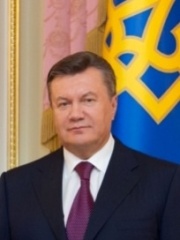
5. Viktor Yanukovych (b. 1950)
With an HPI of 80.36, Viktor Yanukovych is the 5th most famous Ukrainian Politician. His biography has been translated into 98 different languages.
Viktor Fedorovych Yanukovych (born 9 July 1950) is a Ukrainian former politician who served as the fourth president of Ukraine from 2010 to 2014. He also served as the prime minister of Ukraine several times between 2002 and 2007 and was a member of the Verkhovna Rada (parliament) from 2006 to 2010. Yanukovych was removed from the presidency during the 2014 Revolution of Dignity, which followed months of protests against him. Since then, he has lived in exile in Russia. Yanukovych was a member of the pro-Russian Party of Regions. Before entering national politics, Yanukovych was the governor of his native Donetsk Oblast from 1997 to 2002. He was simultaneously the chairman of the oblast's legislature from 1999 to 2001. He first ran for president in the 2004 election, where he was declared the winner against Viktor Yushchenko. However, allegations of electoral fraud and voter intimidation caused widespread protests, in what became known as the Orange Revolution. The Ukrainian Supreme Court nullified the election and ordered a rerun, which Yanukovych lost to Yushchenko. Yanukovych ran for president again in 2010, this time beating Yulia Tymoshenko in an election deemed free and fair by international observers. Yanukovych stood for economic modernisation, greater economic ties with the EU, and military non-alignment. However, his years in power saw what analysts described as democratic backsliding, which included the jailing of Tymoshenko, a decline in press freedom and an increase in cronyism and corruption. In November 2013, Yanukovych suddenly withdrew from signing an association agreement with the EU, amidst economic pressure from Russia. Ukraine's parliament had overwhelmingly approved finalizing the agreement. This sparked massive protests against him, known as the Euromaidan. The unrest peaked in February 2014, when almost 100 protesters were killed by government forces. An agreement was signed by Yanukovych and the opposition on 21 February 2014, but he secretly fled the capital that evening. The next day, Ukraine's parliament voted to remove him and schedule early elections on the grounds that he had withdrawn from his constitutional duties. Some of his own party voted for his removal. Ukraine's new government issued an arrest warrant for Yanukovych, accusing him of responsibility for the killing of protesters. He fled to Russia, claiming to still be the head of state. In 2019, he was sentenced in absentia to a thirteen-year prison term for high treason by a Ukrainian court. In polling conducted since he left office, Yanukovych has ranked as one of the worst presidents in Ukrainian history. Yanukovych has also given his name to a collective term for blunders made by Ukrainian politicians: Yanukisms.

6. John III Sobieski (1629 - 1696)
With an HPI of 80.05, John III Sobieski is the 6th most famous Ukrainian Politician. His biography has been translated into 71 different languages.
John III Sobieski (Polish: Jan III Sobieski (Polish pronunciation: [ˈjan ˈtʂɛt͡ɕi sɔˈbʲɛskʲi]); Lithuanian: Jonas III Sobieskis (Lithuanian pronunciation: ['joːnäs so'bʲɛskis]); Latin: Ioannes III Sobiscius (Latin pronunciation: [joˈannɛs soˈbiʃiʊs]) 17 August 1629 – 17 June 1696) was King of Poland and Grand Duke of Lithuania from 1674 until his death in 1696. Born into Polish nobility, Sobieski was educated at the Jagiellonian University and toured Europe in his youth. As a soldier and later commander, he fought in the Khmelnytsky Uprising, the Russo-Polish War and during the Swedish invasion known as the Deluge. Sobieski demonstrated his military prowess during the war against the Ottoman Empire and established himself as a leading figure in Poland and Lithuania. In 1674, he was elected monarch of the Polish–Lithuanian Commonwealth following the sudden and unexpected death of King Michael. Sobieski's 22-year reign marked a period of the Commonwealth's stabilization, much needed after the turmoil of previous conflicts. Popular among his subjects, he was an able military leader, most famously for his victory over the Ottoman Empire at the Battle of Vienna in 1683. The defeated Ottomans named Sobieski the "Lion of Lechistan", and the Pope hailed him as the saviour of Western Christendom. Suffering from poor health and obesity in later life, Sobieski died in 1696 and was buried at Wawel Cathedral in Kraków. He was succeeded by Augustus II of Poland and Saxony.

7. Stepan Bandera (1909 - 1959)
With an HPI of 79.65, Stepan Bandera is the 7th most famous Ukrainian Politician. His biography has been translated into 68 different languages.
Stepan Andriyovych Bandera (Ukrainian: Степа́н Андрі́йович Банде́ра, IPA: [steˈpɑn ɐnˈd⁽ʲ⁾r⁽ʲ⁾ijowɪtʃ bɐnˈdɛrɐ]; Polish: Stepan Andrijowycz Bandera; 1 January 1909 – 15 October 1959) was a Ukrainian far-right leader of the radical militant faction of the Organization of Ukrainian Nationalists, the OUN-B. Bandera was born in Austria-Hungary, in Galicia, into the family of a priest of the Ukrainian Greek Catholic Church, and grew up in Poland. Involved in nationalist organisations from a young age, he joined the Ukrainian Military Organisation in 1924. In 1931, he became head of propaganda of the Organisation of Ukrainian Nationalists (OUN), and later became head of the OUN for Poland in 1932. In 1934, he organised the assassination of the Polish interior minister, Bronisław Pieracki, and was sentenced to death after being convicted of terrorism, subsequently commuted to life imprisonment. Bandera was freed from prison in 1939 following the invasion of Poland, and moved to Kraków. In 1940, he became head of the radical faction of the OUN, the OUN-B. On 22 June 1941, the same day as Operation Barbarossa, the German invasion of the Soviet Union, he formed the Ukrainian National Committee. The head of the Committee, Yaroslav Stetsko, announced the creation of a Ukrainian state on 30 June 1941, in German-captured Lviv. The proclamation pledged to work with Nazi Germany. The Germans disapproved of the proclamation, and for his refusal to rescind the decree, Bandera was arrested by the Gestapo and sent to a concentration camp. He was released in September 1944 by the Germans in the hope that he could fight the Soviet advance. Bandera negotiated with the Nazis to create the Ukrainian National Army and the Ukrainian National Committee in March 1945. After the war, Bandera settled with his family in West Germany. In 1959, Bandera was assassinated by a KGB agent in Munich. Bandera remains a highly controversial figure in Ukraine. Many Ukrainians hail him as an example, or as a martyred liberation fighter, while other Ukrainians, particularly in the south and east, condemn him as a fascist, or Nazi collaborator, whose followers, called Banderites, were responsible for massacres of Polish and Jewish civilians during World War II. On 22 January 2010, Viktor Yushchenko, the president of Ukraine, awarded Bandera the posthumous title of Hero of Ukraine, which was widely condemned. The award was annulled in 2011 given that Stepan Bandera was never a Ukrainian citizen. The controversy regarding Bandera's legacy gained further prominence following the Russian invasion of Ukraine in 2022.

8. Volodymyr Zelensky (b. 1978)
With an HPI of 79.41, Volodymyr Zelensky is the 8th most famous Ukrainian Politician. His biography has been translated into 169 different languages.
Volodymyr Oleksandrovych Zelenskyy (born 25 January 1978) is a Ukrainian politician and former entertainer who has served as the sixth president of Ukraine since 2019. He took office five years after the start of the Russo-Ukrainian War with Russia's annexation of Crimea and invasion of the Donbas, and has continued to serve during the full-scale Russian invasion of Ukraine, which has been ongoing since February 2022. Born in Kryvyi Rih into a Russian-speaking Jewish family, Zelenskyy obtained a law degree at the city's Institute of Economics; he never practiced, however, instead pursuing a career in comedy and entertainment. Zelenskyy co-created the production company Kvartal 95, which produced films, cartoons, and TV shows including the TV series Servant of the People, in which he played a fictional Ukrainian president. The series aired from 2015 to 2019 and was immensely popular. A political party with the same name as the TV show was created in March 2018 by employees of Kvartal 95. Zelenskyy announced his candidacy in the 2019 presidential election on the evening of 31 December 2018, alongside the New Year's Eve address of then-president Petro Poroshenko on the TV channel 1+1. A political outsider, Zelenskyy positioned himself as an anti-establishment and anti-corruption figure, and had already become one of the frontrunners in opinion polls for the election months before he formally declared his candidacy. He won the election with 73.23 percent of the vote in the second round, defeating Poroshenko in the biggest landslide in the history of Ukrainian presidential elections. As president, Zelenskyy has been a proponent of e-government and of unity between the Ukrainian- and Russian-speaking parts of the country's population. He makes extensive use of social media, particularly Instagram. His party won a landslide victory in the snap legislative election held shortly after his inauguration as president. During the first two years of his administration, Zelenskyy oversaw the lifting of legal immunity for members of parliament (the Verkhovna Rada), the country's response to the COVID-19 pandemic and subsequent economic recession, and some limited progress in tackling corruption in Ukraine. A poll in May 2021 by the Rating Group gave Zelenskyy the highest trust rating out of all Ukrainian presidents, and ranked him as the second-best president after Leonid Kuchma. During his presidential campaign, Zelenskyy promised to end Ukraine's protracted conflict with Russia, and he has attempted to engage in dialogue with Russian president Vladimir Putin. His administration faced an escalation of tensions with Russia in 2021, culminating in Russia's full-scale invasion of Ukraine in February 2022. Zelenskyy's strategy during the Russian military buildup was to calm the Ukrainian populace and assure the international community that Ukraine was not seeking to retaliate. He initially distanced himself from warnings of an imminent war, while also calling for security guarantees and military support from NATO to "withstand" the threat. When Russia launched its full-scale invasion, Zelenskyy remained in Kyiv, declining international offers to evacuate him from the capital under attack; he declared martial law across Ukraine and a general mobilization of the armed forces. Zelenskyy was named the Time Person of the Year for 2022. He has frequently visited frontline and newly liberated areas. Zelenskyy's term was originally scheduled to end in May 2024, but the ongoing Russian invasion and the resulting ongoing martial law prevented the regularly scheduled presidential election from being conducted. He is expected to remain president for the duration of the Russo-Ukrainian War. Due to this extension of his term, Zelenskyy is the second-longest serving president in Ukrainian history, after only Kuchma.

9. Hafsa Sultan (1479 - 1534)
With an HPI of 78.58, Hafsa Sultan is the 9th most famous Ukrainian Politician. Her biography has been translated into 44 different languages.
Ayşe Hafsa Sultan (Ottoman Turkish: حفصه سلطان; 1478/1479 – 19 March 1534), was a concubine of Selim I and the mother of Suleiman the Magnificent. She was the first Valide Sultan of the Ottoman Empire and, during the period between her son's enthronement in 1520 until her death in 1534, she was one of the most influential women in the Ottoman Empire.
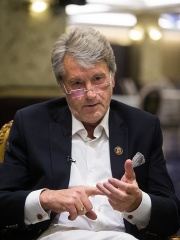
10. Viktor Yushchenko (b. 1954)
With an HPI of 77.43, Viktor Yushchenko is the 10th most famous Ukrainian Politician. His biography has been translated into 88 different languages.
Viktor Andriiovych Yushchenko (Ukrainian: Віктор Андрійович Ющенко, IPA: [ˈwiktor ɐnˈd⁽ʲ⁾r⁽ʲ⁾ijowɪtʃ ˈjuʃtʃenko] ; born 23 February 1954) is a Ukrainian politician who was the third president of Ukraine from 23 January 2005 to 25 February 2010. He aimed to orient Ukraine towards the West, European Union, the G7 and NATO. Yushchenko's first career was in the banking industry. In 1993, he became governor of the National Bank of Ukraine, presiding over their response to hyperinflation and the introduction of a national currency. From 1999 to 2001 he was prime minister under President Leonid Kuchma. After his dismissal as prime minister, Yushchenko went into opposition to President Kuchma and founded Our Ukraine Bloc, which at the 2002 parliamentary election became Ukraine's most popular political force. As an informal leader of the Ukrainian opposition coalition, he was one of the two main candidates in the 2004 Ukrainian presidential election, the other being Prime Minister Viktor Yanukovych. During the election campaign in late 2004, Yushchenko became the victim of an assassination attempt when he was poisoned with dioxin. He suffered disfigurement as a result of the poisoning, but survived. The runoff election in November 2004, won by Yanukovych, was marred by widespread accusations of election fraud, leading to the Orange Revolution and an order by the Ukrainian Supreme Court to repeat the vote. Yushchenko won the revote 52% to 44%. Yushchenko's influence declined soon after assuming the presidency, especially after falling out with his prime minister and leading political ally Yulia Tymoshenko, as did his and his party's popularity and electoral standing. The rest of his presidency was marked by infighting, legislative deadlock and coalition crises in 2007 and in 2008. He lost re-election to Yanukovych in the 2010 Ukrainian presidential election, finishing in fifth place in the first round with 5.5% of the vote. Yushchenko again led Our Ukraine in the 2012 parliamentary election, but they failed to win representation.
People
Pantheon has 260 people classified as Ukrainian politicians born between 200 and 1995. Of these 260, 99 (38.08%) of them are still alive today. The most famous living Ukrainian politicians include Viktor Yanukovych, Volodymyr Zelensky, and Viktor Yushchenko. The most famous deceased Ukrainian politicians include Leon Trotsky, Leonid Brezhnev, and Hurrem Sultan. As of April 2024, 24 new Ukrainian politicians have been added to Pantheon including Yulia Svyrydenko, Aleksandr Rozenberg, and Andrii Sybiha.
Living Ukrainian Politicians
Go to all RankingsViktor Yanukovych
1950 - Present
HPI: 80.36
Volodymyr Zelensky
1978 - Present
HPI: 79.41
Viktor Yushchenko
1954 - Present
HPI: 77.43
Leonid Kuchma
1938 - Present
HPI: 77.21
Yulia Tymoshenko
1960 - Present
HPI: 76.39
Petro Poroshenko
1965 - Present
HPI: 75.21
Sergey Bubka
1963 - Present
HPI: 71.49
Oleksandr Turchynov
1964 - Present
HPI: 68.18
Valentina Matviyenko
1949 - Present
HPI: 66.01
Valeriy Borzov
1949 - Present
HPI: 65.59
Alexander Rutskoy
1947 - Present
HPI: 65.38
Olena Zelenska
1978 - Present
HPI: 65.06
Deceased Ukrainian Politicians
Go to all RankingsLeon Trotsky
1879 - 1940
HPI: 86.25
Leonid Brezhnev
1906 - 1982
HPI: 85.38
Hurrem Sultan
1502 - 1558
HPI: 84.73
Golda Meir
1898 - 1978
HPI: 82.01
John III Sobieski
1629 - 1696
HPI: 80.05
Stepan Bandera
1909 - 1959
HPI: 79.65
Hafsa Sultan
1479 - 1534
HPI: 78.58
Ivan Mazepa
1639 - 1709
HPI: 76.82
Stanisław Leszczyński
1677 - 1766
HPI: 76.50
Leonid Kravchuk
1934 - 2022
HPI: 76.23
Kliment Voroshilov
1881 - 1969
HPI: 76.07
Sviatoslav I of Kiev
942 - 972
HPI: 75.25
Newly Added Ukrainian Politicians (2025)
Go to all RankingsYulia Svyrydenko
1985 - Present
HPI: 61.07
Aleksandr Rozenberg
1967 - Present
HPI: 54.77
Andrii Sybiha
1975 - Present
HPI: 53.20
Illia Kyva
1977 - 2023
HPI: 47.31
Alexander Novak
1971 - Present
HPI: 46.20
Andriy Melnyk
1975 - Present
HPI: 46.15
Olena Kondratiuk
1970 - Present
HPI: 46.13
Ivanna Klympush-Tsintsadze
1972 - Present
HPI: 46.01
Vasyl Tsushko
1963 - Present
HPI: 45.74
Natalia Korolevska
1975 - Present
HPI: 45.10
Victoria Spartz
1978 - Present
HPI: 45.02
Anton Gerashchenko
1979 - Present
HPI: 43.30
Overlapping Lives
Which Politicians were alive at the same time? This visualization shows the lifespans of the 25 most globally memorable Politicians since 1700.

